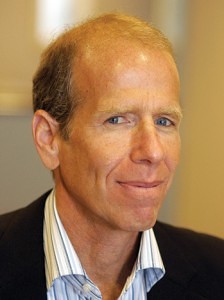 The Hollywood Reporter states that Marc Toberoff, left, attorney for the children of Jack Kirby, has filed an appeal with the New York State Second Circuit Court of Appeal to overturn a recent summary judgement in favor of Marvel Comics and a rejection of the the summary judgement of the Kirby family.
The Hollywood Reporter states that Marc Toberoff, left, attorney for the children of Jack Kirby, has filed an appeal with the New York State Second Circuit Court of Appeal to overturn a recent summary judgement in favor of Marvel Comics and a rejection of the the summary judgement of the Kirby family.
This is not surprising as Toberoff admitted an appeal was in the offing when the decision as per summary judgement was handed down a little over two weeks ago.
The case is controversial amongst the comic book world, with Pro-Kirby factions believing, among other things, that Marvel should be punished for their truly abysmal treatment of Kirby over the years, and the Pro-Marvel side saying, among other things, that the Kirby children (Lisa, Barbara, Susan and Neal) shouldn’t get any money from their father’s creations because they had no hand in creating them.
As emotionally charged as those arguments get, the meat of this case is whether Kirby’s work for Marvel from 1958 to 1963 were “work-for-hire,” or, in other words, work done at the behest of the copyright holders (a.k.a. Marvel) and not original ideas that he sold to them. The court two weeks ago said they were work for hire. It is up to Toberoff to do a better job than he did in the original filing to prove otherwise.
This is the wording from the original complain as per the Kirby Estate’s claims that their father’s work wasn’t work for hire.
22. During this period, Kirby was not an employee of any of Marvel’s Predecessors and was not paid a fixed salary or wage by any of them. Marvel’s Predecessors were not financially obligated to Kirby, kept their options open, and thus never committed to any written agreement pursuant to which Kirby was to create his works. Like many others during this difficult economic time, Kirby worked solely on a freelance basis out of his own home, with his own instruments and materials and thereby bore the financial risk of creating his copyrighted materials. At completion, such material was submitted to Marvel’s Predecessors, and if they accepted it for publication, they purchased Kirby’s material at a perpage rate.
The “Marvel’s Predecessors” refers to the fact that Marvel was known as “Atlas” when Kirby started working for them in 1958.
 The main problem with the argument presented above is that presents an not entirely accurate depiction of the way things worked back then. Stan Lee was writer/editor-in-chief at Marvel at the time, and the accepted belief is that he would provide a plot outline (which could have been as simple as “The Fantastic Four fights aliens for three issues”) to Kirby and then he would run with it. It wasn’t the other way around often, or at all. This means that Kirby’s work was A)part of a collaborative/collective work and B) specifically ordered by Lee.
The main problem with the argument presented above is that presents an not entirely accurate depiction of the way things worked back then. Stan Lee was writer/editor-in-chief at Marvel at the time, and the accepted belief is that he would provide a plot outline (which could have been as simple as “The Fantastic Four fights aliens for three issues”) to Kirby and then he would run with it. It wasn’t the other way around often, or at all. This means that Kirby’s work was A)part of a collaborative/collective work and B) specifically ordered by Lee.
The only shaky part of the definition of “work-for-hire” as it applies to this case is the C) part–that there must be a written agreement as to the nature of the work. Kirby never signed anything between 1958-1963 stating that his contributions were work-for-hire, only doing so in 1972, and under duress. The previous court found that 1972 agreement sufficient. This is where Toberoff will have to focus his efforts–to discredit that agreement or argue that after-the-fact judgments are not valid.
How will the appeal turn out? Will this keep The Avengers from coming out next year? Well, copyright law is a mess. It seems Marvel currently has a good leg to stand on, but it will depend on what the appeals court thinks of that 1972 agreement. Regardless, I doubt this case will be settled before May 4 of next year.




